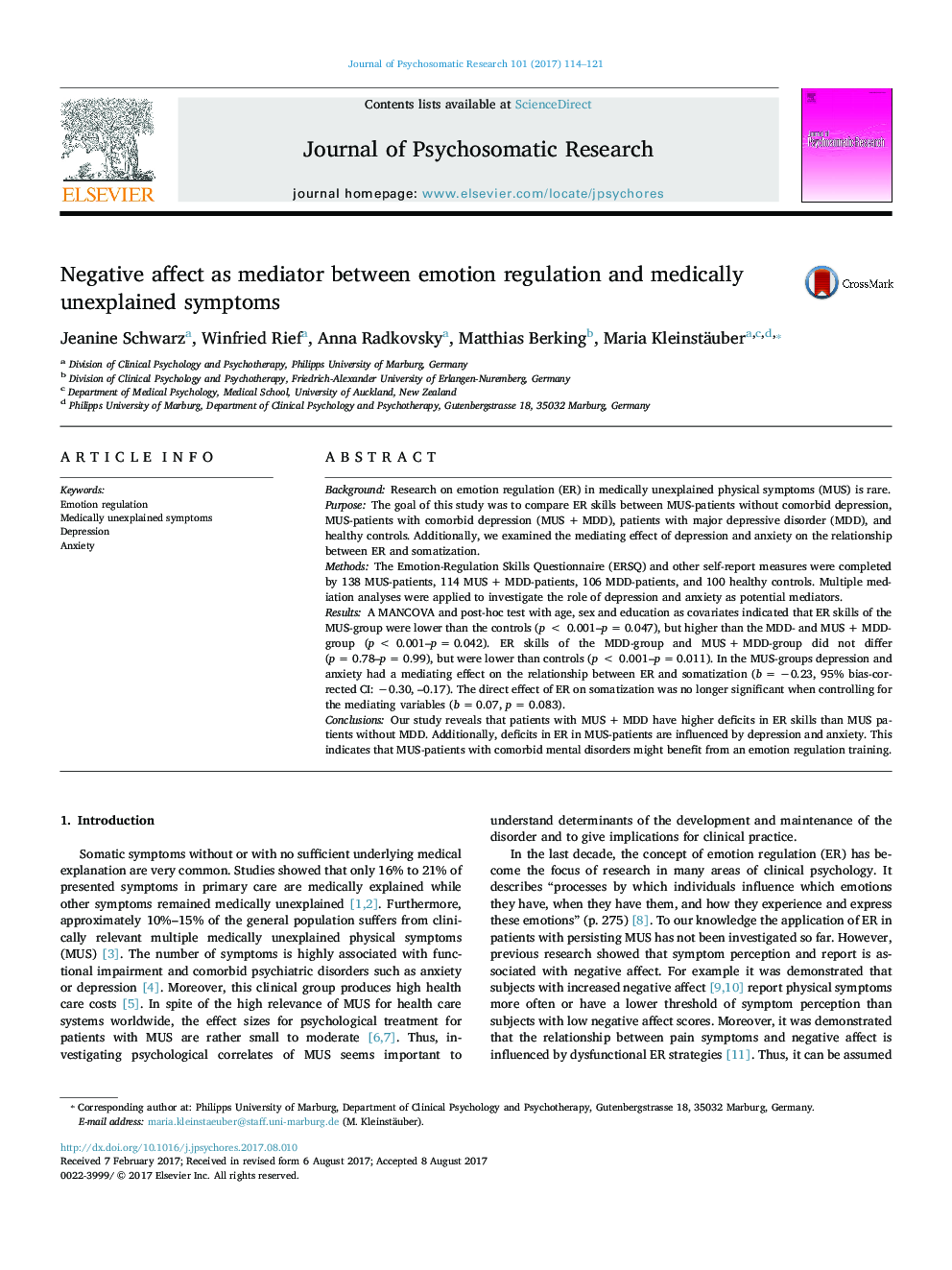| کد مقاله | کد نشریه | سال انتشار | مقاله انگلیسی | نسخه تمام متن |
|---|---|---|---|---|
| 5045825 | 1475894 | 2017 | 8 صفحه PDF | دانلود رایگان |
- We compare emotion regulation (ER) skills between several clinical groups and healthy controls.
- Clinical groups include patients with medically unexplained physical symptoms (MUS) and major depressive disorder (MDD).
- MUS-patients show higher ER-skills than MUS-patients with comorbid depression (MUSÂ +Â MDD) and patients with MDD.
- Depression and anxiety have a mediating effect on the relationship between ER and somatization in all patients with MUS.
BackgroundResearch on emotion regulation (ER) in medically unexplained physical symptoms (MUS) is rare.PurposeThe goal of this study was to compare ER skills between MUS-patients without comorbid depression, MUS-patients with comorbid depression (MUS + MDD), patients with major depressive disorder (MDD), and healthy controls. Additionally, we examined the mediating effect of depression and anxiety on the relationship between ER and somatization.MethodsThe Emotion-Regulation Skills Questionnaire (ERSQ) and other self-report measures were completed by 138 MUS-patients, 114 MUS + MDD-patients, 106 MDD-patients, and 100 healthy controls. Multiple mediation analyses were applied to investigate the role of depression and anxiety as potential mediators.ResultsA MANCOVA and post-hoc test with age, sex and education as covariates indicated that ER skills of the MUS-group were lower than the controls (p < 0.001-p = 0.047), but higher than the MDD- and MUS + MDD-group (p < 0.001-p = 0.042). ER skills of the MDD-group and MUS + MDD-group did not differ (p = 0.78-p = 0.99), but were lower than controls (p < 0.001-p = 0.011). In the MUS-groups depression and anxiety had a mediating effect on the relationship between ER and somatization (b = â0.23, 95% bias-corrected CI: â0.30, -0.17). The direct effect of ER on somatization was no longer significant when controlling for the mediating variables (b = 0.07, p = 0.083).ConclusionsOur study reveals that patients with MUS + MDD have higher deficits in ER skills than MUS patients without MDD. Additionally, deficits in ER in MUS-patients are influenced by depression and anxiety. This indicates that MUS-patients with comorbid mental disorders might benefit from an emotion regulation training.
Journal: Journal of Psychosomatic Research - Volume 101, October 2017, Pages 114-121
